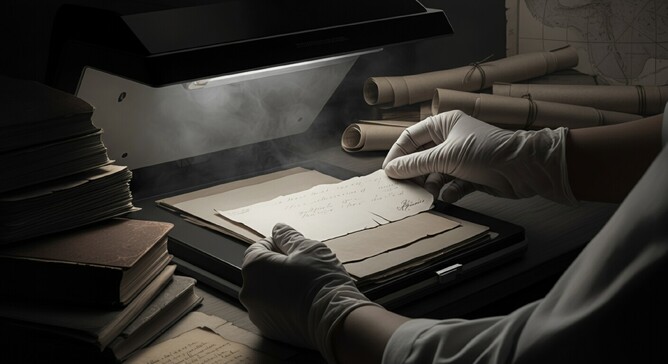Historical documents are more than paper — they’re treasures of memory, culture, and identity. From century-old letters to archival records, these fragile materials are often irreplaceable. But with age comes vulnerability: ink fades, paper crumbles, and disasters can wipe out collections forever.
Digitisation is the key to protecting these documents for future generations — but it must be done with extreme care.
Understanding Fragility
Old paper is often brittle, yellowed, and prone to tearing. Some documents are handwritten, others stamped or embossed. Each requires a different handling approach. The first step is to assess the condition of each item before scanning.
Preparing Documents for Scanning
Preservation starts before the scanner is even switched on. Best practices include:
Wearing cotton or nitrile gloves to avoid oils from skin
Using soft brushes or air puffs to remove dust
Flattening creases with light weights instead of force
This preparation ensures fragile records are safe throughout the process.
Choosing the Right Equipment
Not all scanners are equal. For delicate records:
Flatbed scanners are ideal, as they avoid feeding paper through rollers
High-resolution imaging (600 dpi or more) captures even the faintest handwriting or marks
Non-contact scanners may be needed for extremely fragile or bound materials
The goal is to digitise with zero additional wear and tear.
Handling Bound or Oversized Materials
Books, registers, or large-format archives like maps require specialised techniques. V-shaped book cradles and large-format scanners minimise stress on the spine or edges, while capturing every detail.
Digital Preservation Beyond Scanning
Scanning is just the first step. Long-term preservation means:
Saving in archival-quality formats (TIFF or PDF/A)
Backing up files in multiple secure locations
Adding metadata to make the collection searchable and organised
Creatipix: Protecting History with Care
At Creatipix, we’ve worked with local organisations, libraries, and families to digitise priceless historical records. Our team handles each item with care, using industry best practices to ensure nothing is damaged in the process.
Whether it’s a box of old letters or an institutional archive, we make sure your history is preserved safely, accurately, and accessibly.
Do you have fragile documents that deserve preservation?
Give us a call on +64 6 876 5575 to discuss how we can help protect your history for future generations.

